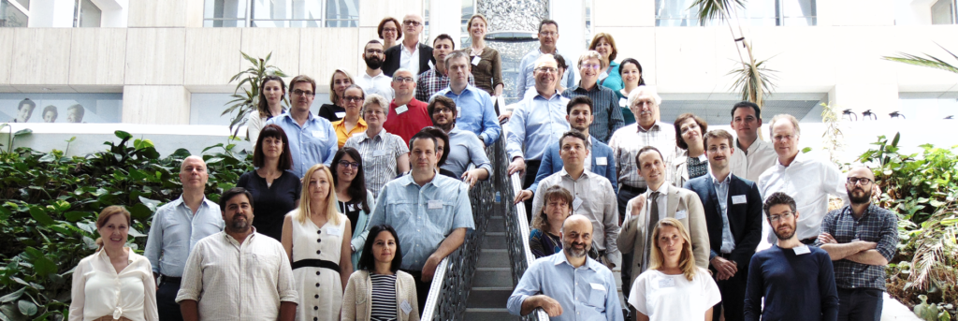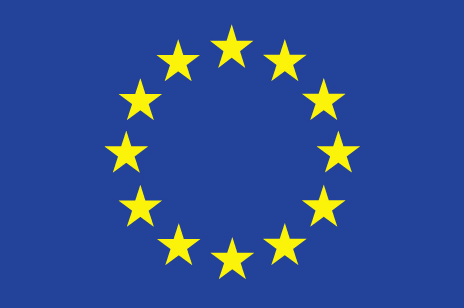Developing more effective agri-environmental public goods mechanisms and contracts
(funded by European Union Horizon 2020)
The Horizon 2020 EU funded CONSOLE project brings together partners from 13 EU countries to design and support the implementation of innovative agri-environmental-climate public good (AECPGs) delivered through agriculture and forestry.
Agri-environmental public goods are the goods or benefits that people enjoy without having to pay for them – such as clean air and water, biodiverse wildlife or the sequestration of carbon into agricultural soils. These all improve our quality of life and wellbeing, but we don’t pay to access them each time we ‘use’ them.
The project will improve understanding of the ways AECPGs are currently delivered in a range of different settings, and identify successful experiences and good practice. This improved understanding will support the creation of a framework that will support the design and delivery of improved and more innovative contract solutions (that is, the relationships between the public administration, at different scales, and the farmers) to deliver AECPGs.
iCASP is leading the University of Leeds’ involvement in the project and brings together experts in sustainable agriculture, economics and agricultural law. iCASP’s role in the CONSOLE project is to create a case study that summarises what the Yorkshire-based projects in the Countryside Stewardship Facilitation Fund (CSFF) have done and summarise any associated learning and best practice that can be applied elsewhere.
A key activity of the CONSOLE project will be to gather information on farmer and land manager views and preferences on novel AECPGs through various in-person surveys. This will then feed information into another part of the project: the formation of a Community of Practice (CoP) across the EU countries involved. The general objective of CONSOLE is to boost innovation in the lasting delivery of AECPGs and building the CoP will help achieve this.
(CONSOLE: CONtract SOLutions for Effective and lasting delivery of agri-environmental-climate public goods by EU agriculture and forestry)
Partners
University of Leeds
Yorkshire Wildlife Trust
Leeds City Council
Barnsley Metropolitan Council
Environment Agency
Dale to Vale Rivers Network
Yorkshire Water
Yorkshire Invasive Species Forum
Project Team
Prof. Julia Martin-Ortega, Prof. Pippa Chapman, Prof. Joe Holden, Prof. Michael Cardwell, Prof. Guy Ziv & Prof. Les Firbank – University of Leeds
Manolis Tylianakis – iCASP Impact Translation Fellow
Duration
May 2019 – April 2022


Outputs
Five factsheets have been created using case studies across Yorkshire of either localised or country-wide practices that land managers apply, and their experiences, that deliver Agri-environment Climate Public Goods (AECPGs).
South Pennines
CONSOLE case study
Delivering multiple environmental benefits in the South Pennines
Wharfedale
CONSOLE case study
Using natural flood management to achieve multiple environmental benefits in Wharfedale
Wensleydale
CONSOLE case study
Building natural flood management knowledge and capacity in Wensleydale
Swaledale
CONSOLE case study
Natural flood management in the River Swale catchment in Yorkshire
Esk Valley
CONSOLE case study
Environmental improvements across a whole catchment: Esk Valley
A paper by Professor Julia Martin-Ortega and research fellow Emmanouil Tyllianakis at University of Leeds about some of the findings of the Console project published in Land Use Policy:
Agri-Environment Schemes (AES) seem to only have had limited success in preserving biodiversity and providing environmental benefits . This paper reviews and quantifies, for the first time, evidence that explores farmer-related factors with respect to their influence on land managers’ willingness to accept compensation for the delivery of biodiversity and environmental features’ protection.
Some findings are:
- Farmers are generally willing to enrol in agri-environmental schemes.
- Providing support to farmers may incentivise further enrolment in schemes.
- New ways of monitoring compliance can also increase enrolment.
- New mechanisms to incentivise enrolment of smaller adjacent holdings are needed.
Other publications:
Useful links:
The CONSOLE project is led by the University of Bologna – more information about the CONSOLE project and partners
Follow on Twitter @ProjectConsole
Updates:

This project has received funding from the European Union’s Horizon 2020 research and innovation programme under grant agreement No 817949
